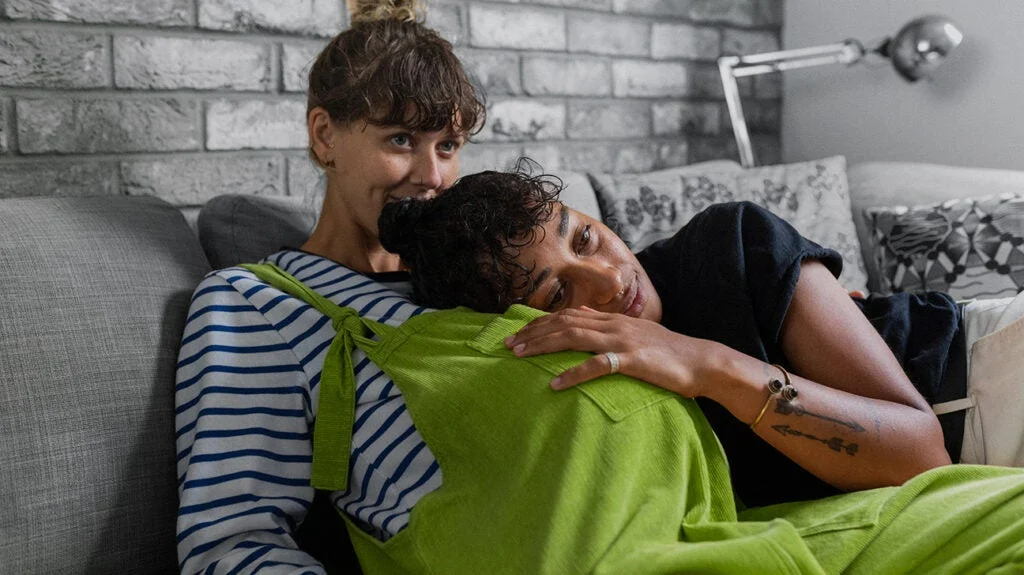So, I nursed in stores, parks, and even while strolling with him in a baby carrier. I mastered the art of leaning over his car seat while sitting in stopped traffic (seatbelt on, of course). Surprisingly, I never caught anyone giving me a sideways glance while nursing without a cover. Living in a New York City suburb, I knew not many moms nursed out in the open, but it was common enough that harassment wasn’t on my radar. That was until one fateful summer day.
When my son turned six months, we found ourselves upstate for a week. One afternoon, we decided to grab a quick lunch at Subway. With limited options, we settled for it, but as we waited for our sandwiches, my baby needed his usual snack. I lifted my shirt, unaware of the drama about to unfold. We were tucked away in a booth, and I thought we were pretty discreet. But then, an employee shouted from across the room, “Excuse me, ma’am, you can’t do that here.”
I blinked, genuinely confused. “What do you mean?” I asked. “I nursed my babies too, but you can’t do that here. You should go to the restroom if you want to continue,” she insisted, gesturing to the solitary patron with his back turned. “That’s indecent exposure,” she declared.
In that moment, I was utterly speechless. Sure, I managed to mumble something about my legal right to breastfeed, but she kept insisting it was “indecent.” So, like many women in similar situations, I exited stage left, feeling violated and ashamed.
Even now, eight years later, the memory stings. I was fully clothed, yet her words made me feel exposed. Even though no one was watching, I felt as if the whole world was staring at me. I still feel embarrassed sharing this story—not for the incident itself, but because I wish I had stood up to her. Instead, I wrote a letter to Subway, and they sent me an apology. They promised to educate their staff and even tossed in a coupon for free sandwiches.
But despite the support from my friends and family, I never regained that carefree spirit I once had about nursing in public. I continued to breastfeed, but now I was hyper-aware of my surroundings, my outfit, and how much skin might be visible when my baby decided to unlatch.
Shortly after, I became a breastfeeding counselor and later a certified lactation consultant (IBCLC). I could go on for days about how our society has twisted breast culture into something sexualized, making breastfeeding seem inappropriate. Did you know that 49 out of 50 states have laws protecting a woman’s right to nurse publicly? Unfortunately, very few states have real consequences for those who break these laws, and that’s something that must change.
We need to support mothers facing harassment while breastfeeding. Whether it’s showing up for nurse-ins or simply offering encouragement, we all play a role. It’s crucial to normalize breastfeeding in public. However, no amount of activism can restore the innocence that was stripped from me that day.
Women are harassed for breastfeeding every day, and many don’t even report it. Some choose to use covers, while others pump and bottle-feed, or even wean their babies earlier than they’d like because they feel confined to their homes. As a lactation consultant, I never pressure mothers to breastfeed in public, nor do I insist on covers. I understand how deeply personal feelings about bodies and shame can be.
I wish I could assure mothers that everything will be fine if they nurse in public—and most likely, it will be. But I also know that harassment is a real threat, and we have so much work to do to change this narrative. It’s not just about breastfeeding; it’s a feminist issue, a matter of dignity and human rights. It’s about how we treat mothers, children, and families.
In 2016, it’s unacceptable that women still hesitate to lift their shirts to nurse. But they do. And it’s high time we changed that.
For more insights on breastfeeding and parenting, check out our other blog posts here.
Summary
Breastfeeding in public should be a natural part of motherhood, yet many women face harassment and shame while doing it. The author recounts a painful experience of being scolded for nursing her baby in a Subway restaurant, highlighting the societal stigma surrounding breastfeeding. Despite having legal rights, many mothers feel pressure to hide or stop breastfeeding in public. The article stresses the need for cultural change to support breastfeeding mothers and normalize the act as a vital aspect of parenting.
